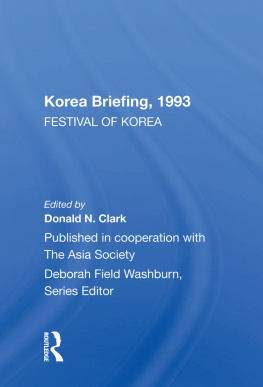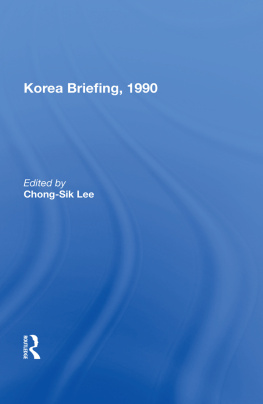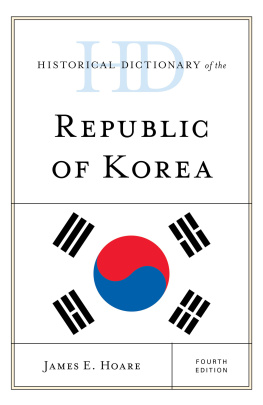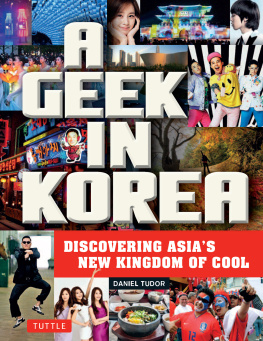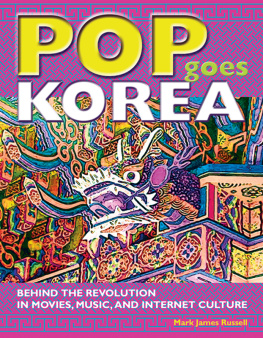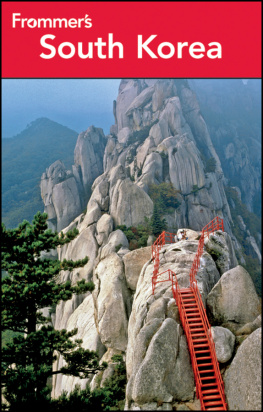First published 1993 by Westview Press, Inc.
Published 2018 by Routledge
52 Vanderbilt Avenue, New York, NY 10017
2 Park Square, Milton Park, Abingdon, Oxon OX14 4RN
Routledge is an imprint of the Taylor & Francis Group, an informa business
Copyright 1993 by The Asia Society
All rights reserved. No part of this book may be reprinted or reproduced or utilised in any form or by any electronic, mechanical, or other means, now known or hereafter invented, including photocopying and recording, or in any information storage or retrieval system, without permission in writing from the publishers.
Notice:
Product or corporate names may be trademarks or registered trademarks, and are used only for identification and explanation without intent to infringe.
Library of Congress ISSN: 1053-4806
ISBN 13: 978-0-367-01187-1 (hbk)
This edition of Korea Briefing, the fourth in the series, is issued in conjunction with The Asia Society's Festival of Korea, a yearlong, nationwide celebration of Korean history, culture, and contemporary life. A collaborative endeavor between The Asia Society and cultural institutions throughout the United States and Korea, the Festival begins in autumn 1993 and takes place in major U.S. cities including New- York, Los Angeles, Washington, D.C., Houston, Atlanta, Chicago, and Seattle. Among its features are an art exhibition, an array of performances, a film festival, and a symposium series titled "Korea: Past and Present." Korea Briefing, 1993 both stands on its own in a well-established series and serves as a companion to Festival events.
In addition to providing an overview of recent developments on the Korean peninsulathe precedent-setting election of Kim Young-sam as South Korea's first civilian president in more than three decades, changing security and economic relations between the United States and South Korea, the dramatic (though as yet unfulfilled) threat by North Korea to withdraw from the Nonproliferation Treaty regime Korea Briefing, 1993 supplies extensive historical background to these events. It traces South Korea's political and economic development from the time of Korea's liberation from Japanese colonial rule in 1945 to mid-1993. Likewise, it charts five decades of U.S. policy toward the Republic of Korea, beginning with an account of the birth of the Republic from postwar devastation in an atmosphere of growing U.S.-Soviet conflict, continuing with a description of the close military and economic relationship between the United States and South Korea, and winding up with a call for both sides to meet the opportunities and challenges of the new global strategic and economic environment.
This year's cultural chapters, on literature, dance, and music, explore the origins of these art forms and their evolution in modern times. Although the focus of the discussion of contemporary arts is on South Korea, sections on North Korean literature and music, as well as on the music of Korean communities outside of Korea, are included. The closely intertwined dance and music chapters are illustrated with photographs of performers and performances that complement Festival events.
A guiding purpose of the Korea Briefing seriesand of the Festival of Koreais to increase understanding by Americans of Korea and Koreans. To this end, Korea Briefing, 1993 includes a chapter on Korean Americanswho they are, how they came to the United States, and what makes up the fabric of their lives today. The special challenges faced by the Korean American community in the wake of the 1992 Los Angeles riots are discussed in depth.
Two additional chapters, by a Korean and an American, are mirror images of one another. Drawing on personal experience and survey data, each author presents views of the other culture from the perspective of his own. By confronting areas of ambivalence and ignorance, both chapters puncture stereotypes and promote tolerance.
This special edition of Korea Briefing closes with a chronology of Korean history from the Choson dynasty (1392-1910) to the intensive negotiations between U.S. and North Korean officials over Pyongyang's nuclear program July 1993). It includes a glossary of personalities and terms and a list of suggestions for further study that encompasses books, articles, sound recordings, and videotapes. We believe that this volume will both add an important dimension to classroom study and enrich individual exploration of Korea's past and present achievements.
Numerous dedicated individuals have worked together to bring this volume to completion. Editor, chapter author, and chronologer Donald N. Clark has been tireless in his commitment to the project. The high quality of the book is in large part the result of his efforts. We thank him and all of the other chapter authors, who fulfilled their assignments with proficiency and dispatch. At The Asia Society, Senior Editor Deborah Field Washburn shaped the chapters and oversaw all aspects of the project. Editorial Associate Sayu Bhojwani provided editorial assistance of a high quality, along with efficient management of all the details of publication. For the fourth straight year, Dawn Lawson copyedited the manuscript with great skill and thoroughness. Editorial intern Lisa Park made numerous helpful suggestions and proofread the chapters with care. Useful comments were also provided by Christine Kim, Gwi-Yeop Son, and Maria Tham. Finally, at Westview Press, Susan McEachern and her colleagues brought their high standards to bear on the volume's production.
Marshall M. Bouton
Executive Vice President
The Asia Society
August 1993
Donald . Clark
Nineteen ninety-two was the final year of Roh Tae-woo's term as president of the Republic of Korea, following his dramatic Democratization Declaration of June 29, 1987. Roh did much to convert South Korean politics from the authoritarian habits of military-led rule to the freerand riskieratmosphere of plural politics. With election reform political participation expanded dramatically, and there was open competition for seats in the national legislature and local councils. The voters opened up the system and made the government deal with plural points of view on many levels. As Roh left office, nearly everyone gave him credit for that.
Roh's foreign policy successes were even more dramatic. After a steady increase in political contacts and trade arrangements with the nations of the former socialist bloc, in 1992 he established diplomatic relations with two old enemies, China and Vietnam. He even succeeded in cracking North Korea's shell and moving it toward a more tractable position when it came to inter-Korean relations. Beginning in 1990, Roh's prime minister began meeting with his North Korean counterpart in a series of talks that led to significant reconciliationat least on paperin December 1991.
The year 1992 began on a note of high hopes for further progress toward reunification. Unfortunately, however, the difficult problem of nuclear weapons intruded to stall the momentum later in the year, and questions about North Korea's suspected nuclear weapons program had grown into a major international confrontation by the spring of 1993.


